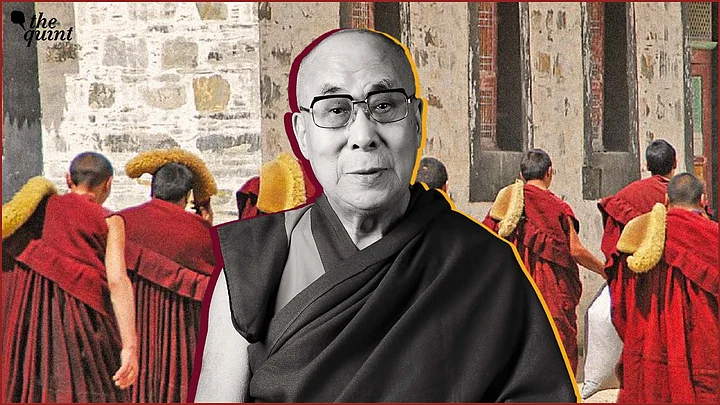The media coverage of the disinformation campaign against His Holiness the Dalai Lama’s innocent interaction with a child shows how quick and easy it is for the media and the world to dismiss and wrong the already marginalised Tibetans. First, it exposed the fallacies of news media in the social media age—impulsive to publish the next big story on trend, compromising its responsibility of fact-checking for the ultimate ‘scoop’.
One of the earliest sources of the widely circulated video was published on 8 April by a Twitter account that is only nearly two months old. The purported online backlash was incited by shares and reposts from other accounts, Wumaos, foreign CCP beneficiaries, and Chinese state associates, grossly misinterpreted by an injudicious audience through their narrow socio-cultural perspective.
Furthermore, the official apology published by the Office of His Holiness the Dalai Lama which came from his holiness’s magnanimity of spirit, has been abused to show him in a negative light.
Secondly, the media’s framing of this event reflects its inherent bias and its disregard for Tibetan voices. The coverage of the purported online backlash did not attempt to analyse the source or understand the cultural context and failed to include Tibetan perspectives from the diaspora.
How Media Paints a Contorted Picture of the Tibetans
Even to this day when the online narrative surrounding the event has become somewhat sympathising towards His Holiness the Dalai Lama and the Tibetans, for leading global media such as the BBC to publish a vaguely titled article on Tibet’s precolonial time inferring “slavery” in Tibet— a popular propaganda narrative used by the Chinese government to justify its colonial occupation of Tibet, is irresponsible.
The same article questions the veracity of legitimate concerns raised by the Tibetan leadership about the Chinese involvement in the disinformation campaign. The fact that the BBC published this story without mentioning another related incident that occurred the previous day is intriguing: a Tibetan teacher was detained in Tibet for vocalising his happiness at seeing His Holiness the Dalai Lama in the said manipulated video on Chinese social media. This is significant because China typically bans anything related to His Holiness in Tibet.
In her proclaimed debut novel “We Measure the Earth with Our Bodies." Tsering Yangzom Lama (2022) probes into the issue of epistemic violence when Dolma, one of the protagonists, confronts a professor of Tibetan studies over his subtle justification of Tibet’s occupation by alluding to the difficult life in precolonial Tibet:
If other countries could modernize on their own, isn’t that also our right?... I think you underestimate the agency of six million people… you are an expert speaking about a colonized country. Can’t you see how much power you have to shape the discourse? Much more than any Tibetan. To the academy, to the wider public outside my community, you are seen as the objective, enlightened arbiter of truth… you can draw a veil over the politics, call the occupation by another name or ignore it completely, studying only the pieces of us that risk nothing for you. But the occupation doesn’t begin and end on the edges of my country. It lives in the words you select when you write about us. (Lama 2022).
Disinformation Campaign Against the Dalai Lama Does Little To Malign His Image
Epistemic violence is defined as the one stemming from knowledge. This violence can be inflicted upon individuals or groups and is rooted in the pre-existing power dynamics and inequalities in society. In such cases, knowledge, or rather our interpretation of it, is said to become an enabler of domination by legitimising domineering practices.
Every day, Tibetans living in exile assume the responsibility of safeguarding our history and asserting our right to self-determination, even as we face personal challenges in rebuilding our lives. It is infuriating to learn about the epistemic injustice that Tibetans have suffered after losing our ancestral homeland to the colonisers.
From such abstruse forms of colonial enabling in Tibet to the self-censorship or marginalisation of Tibetan voices in media as made clear by recent events surrounding the disinformation campaign against the Dalai Lama, the case of Tibet’s colonisation has evolved from that of illegal occupation to one of the contentious “internal” politics of Beijing.
The silver lining of this unsuccessful disinformation against His Holiness the Dalai Lama was that the manipulated video was made available to be watched on Chinese social media in Tibet. Contrary to the expectations of the Chinese government, Tibetans were not deceived but overjoyed to see the video of their beloved guru freely after so long.
The vehement malignment of our most-revered spiritual leader has caused profound distress for Tibetans around the world but it is also this difficult time that has revealed the faith of the Tibetans, the Himalayan communities, Buddhist devotees, and Tibet supporters around the world. His Holiness Dalai Lama is a uniting force for the Tibetans galvanising those in the diaspora to overcome petty politics and regional factionalism.
Yet, among the ones who are still persistent with the disinformation campaign is the former editor of Global Times, Hu Xijin who has published his propaganda piece on the website raising questions about His Holiness the Dalai Lama’s personal life. Recent social media posts by Chinese government affiliates like Hu Xijin and other propaganda actors also feature short clips of the Dalai Lama’s interaction with British amputee, Tilly Lockey and Lady Gaga that had been edited to build upon the false narrative and misrepresent His Holiness the Dalai Lama. Ironically, it is propaganda actors such as Hu Xijin whose own personal life is marred with controversy and serious allegations.
(Lobsang Kyizom recently graduated with an MA in International Relations from New York University)
